Community matters: Building and nourishing peer groups to bridge the mentorship gap among women-led businesses
 by Mitali, Disha Bhavnani and Ankit Kumar
by Mitali, Disha Bhavnani and Ankit Kumar May 15, 2024
May 15, 2024 5 min
5 min
MSC partnered with WE Hub under its “Women led business (WLB)” program, funded by MetLife Foundation. Our blog highlights how incubators play a crucial role in handholding and mentorship support for women-led businesses. In this blog, we explore ways peer learning can bridge the mentorship gap among women entrepreneurs.
“I wanted to buy two sewing machines for my tailoring business and reached out to my nearest bank branch for a loan. The bank officials gave me a list of documents I must submit to initiate the loan process. However, I did not understand the listed documents and where to obtain them. I tried to contact bank officials but did not receive adequate support. I am unsure what to do next,” sighs Pragna, a 32-year-old woman entrepreneur from Hyderabad, India who runs a tailoring business.
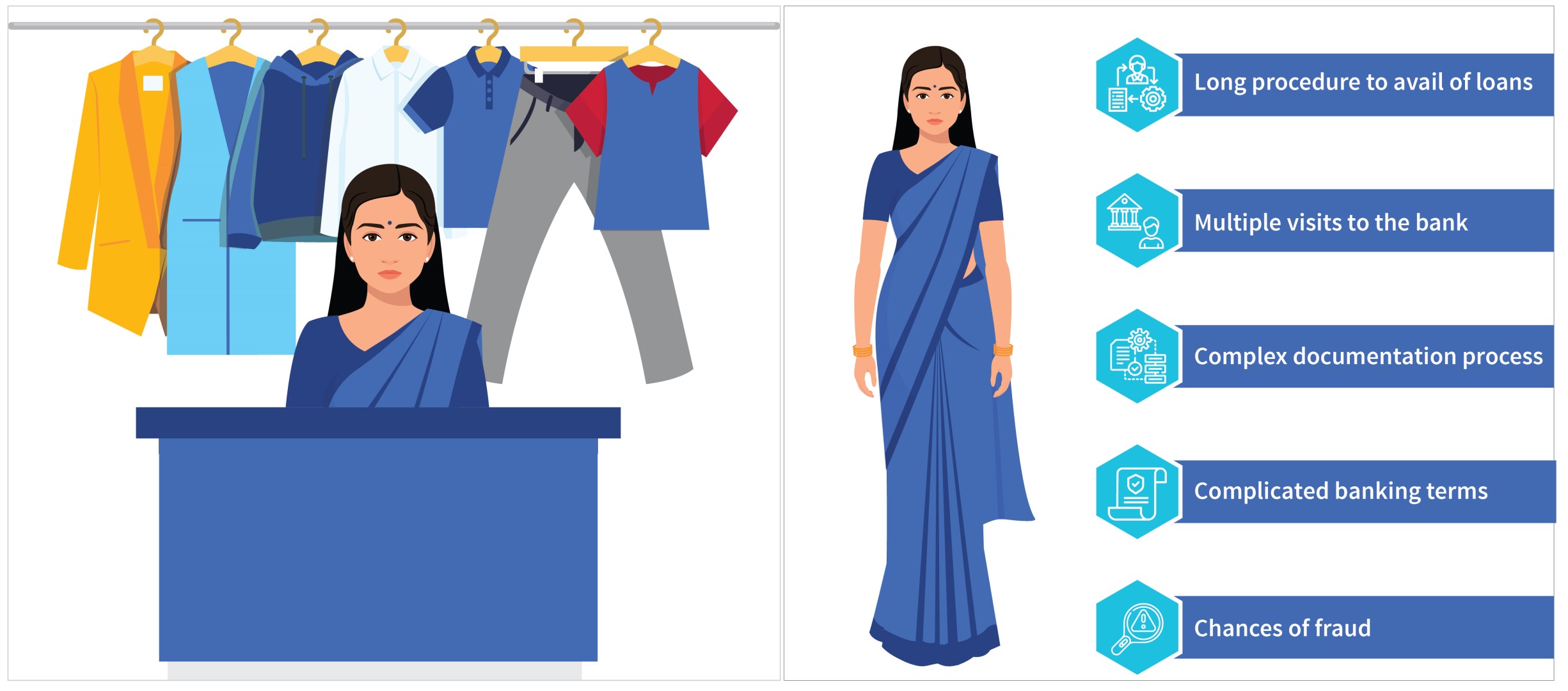
Fig 1: Pragna’s desire versus the current ordeal
Pragna’s story is not an isolated case. It highlights the importance of mentorship support for the 8 million women-led businesses (WLBs) in India, which can help them overcome such challenges. Mentorship support implies access to professional industry networks, hyperlocal peers, and experienced mentors for handholding and guidance. MSC’s recent study reveals that mentorship support is crucial for WLBs’ growth. A study by the Reserve Bank Innovation Hub suggests that WLBs that receive mentorship support show a higher level of business acumen and willingness to seek external funding.
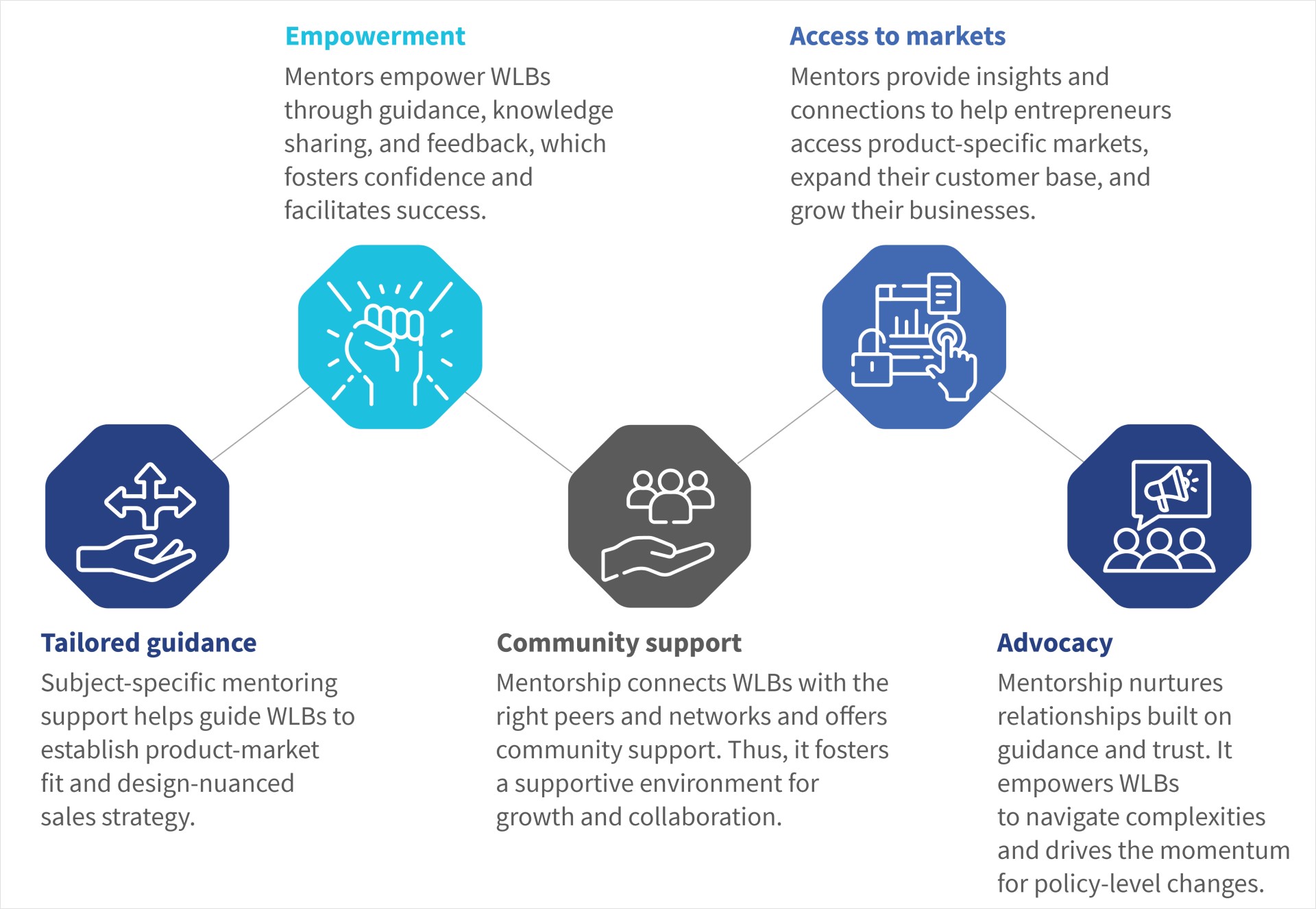
Fig 2: Importance of mentorship support for WLBs
Despite the critical role mentorship plays, it is among the most ignored support areas. Only around 5% of state programs and 9% of central entrepreneurship programs include mentoring and networking for entrepreneurs in India.
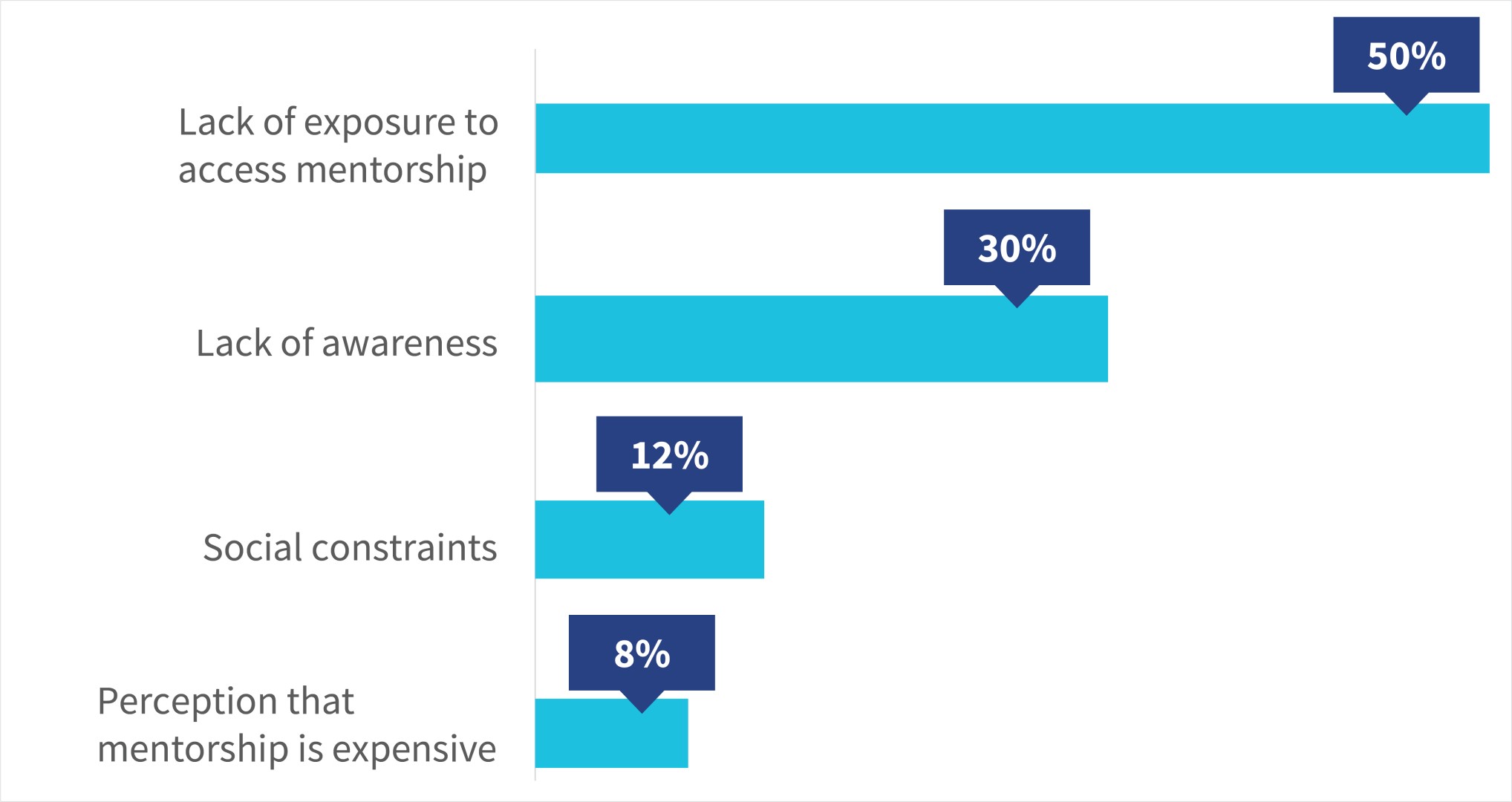
Fig 3: Reasons why WLBs do not seek mentorship
(Source: Qualitative interviews with 150 WLBs in India and MSC’s analysis on the importance of mentorship support for WLBs)
Further, a recent study by MSC and the Women Entrepreneurship Platform (WEP) found that a mere ~25% of surveyed women entrepreneurs have access to entrepreneurial mentorship and 64% are unaware of any mentorship programs for entrepreneurs. The concept of mentorship support for business growth remains nascent for women entrepreneurs, especially for those from Tier III and smaller geographies.
Role of specialized incubators to improve access to mentorship support
Overall, India has approximately 763 incubators and accelerators. However, most of them cater to the startup segment. Few incubation centers offer nuanced support to WLBs. In this blog, we delve into the role of one such incubator, WE Hub, which spearheads WLBs’ growth in India through mentorship support.
WE Hub is India’s first state-led incubation center in Telangana state that supports WLBs. The one-stop entity provides WLBs with entrepreneurship support across their business lifecycle. This includes access to capital, market linkages, training and capacity building, and networking opportunities. Mentorship and guidance across all these focus areas form the backbone of WE Hub’s work. Let us go back to Pragna’s case to understand this better.

Fig 4: Role of WE Hub across the entrepreneurial needs of Pragna
The WE Hub way: The use of peer groups to bridge the mentorship gap among WLBs
In the above image, we observed how guidance and mentorship play a key role in entrepreneurship. WE Hub’s method has been to provide “mentorship with the help of the community.” MSC designed a range of support areas to foster community engagement for WE Hub’s WLBs under the flagship project “ Women-led Business (WLB) program,” funded by the MetLife Foundation. These initiatives seek to create a network of mutual mentorship and empower women to support each other’s business growth collaboratively.
Community groups to lean in:
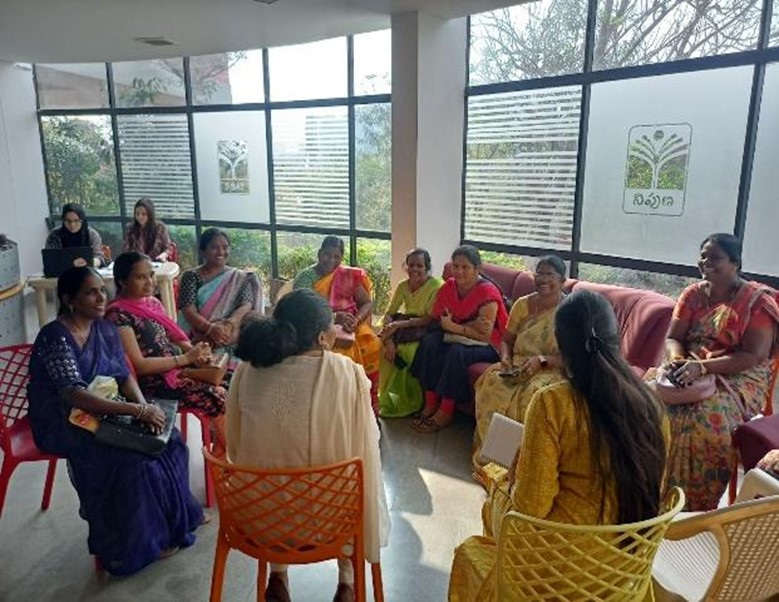 WE Hub regularly conducts in-person discussions with WLBs in similar businesses. However, those meetups primarily catered to training sessions or discussed physical marketing (fairs) events. MSC mobilized WLBs to come together and discuss the challenges around their business’s management with WLB’s support. The group was a good mix of mature and nascent business-stage WLBs.
WE Hub regularly conducts in-person discussions with WLBs in similar businesses. However, those meetups primarily catered to training sessions or discussed physical marketing (fairs) events. MSC mobilized WLBs to come together and discuss the challenges around their business’s management with WLB’s support. The group was a good mix of mature and nascent business-stage WLBs.
Interactions with the peer community encouraged women to share their challenges freely and seek guidance from other WLBs. The suggestions from successful WLB entrepreneurs encouraged peer WLBs to continue to put effort into their businesses.
During our group interactions with WLBs, we observed that established WLBs had much to share about their journey. Most nascent stage WLBs were all ears to understand and learn more from each other. We asked ourselves, “Can we formalize and digitize this so that more WLBs can learn from each other?”
Digitizing the community interactions with human touch
Most WLBs already used WhatsApp for communication. MSC used WLBs’ familiarity with WhatsApp for peer learning. We developed video collaterals that covered insurance, digital payments, business registration, marketing, and business management. We shared these videos with the WLBs in the learning groups we created on WhatsApp. This made the information easily accessible for WLBs.
MSC also identified other digital platforms to engage with these women, such as Google Meet, and used them to conduct group interactions. This was especially helpful for WLBs who could not participate in knowledge-sharing gatherings due to household responsibilities and long commutes. MSC included a good mix of in-person and digital learning sessions to ensure inclusivity, encourage peer learning, and forge the foundation for collaboration.
These initiatives helped WLBs engage meaningfully and learn the best business practices from each other. Ground-level insights determined most of MSC’s interventions and made them relevant and valuable for WLBs.
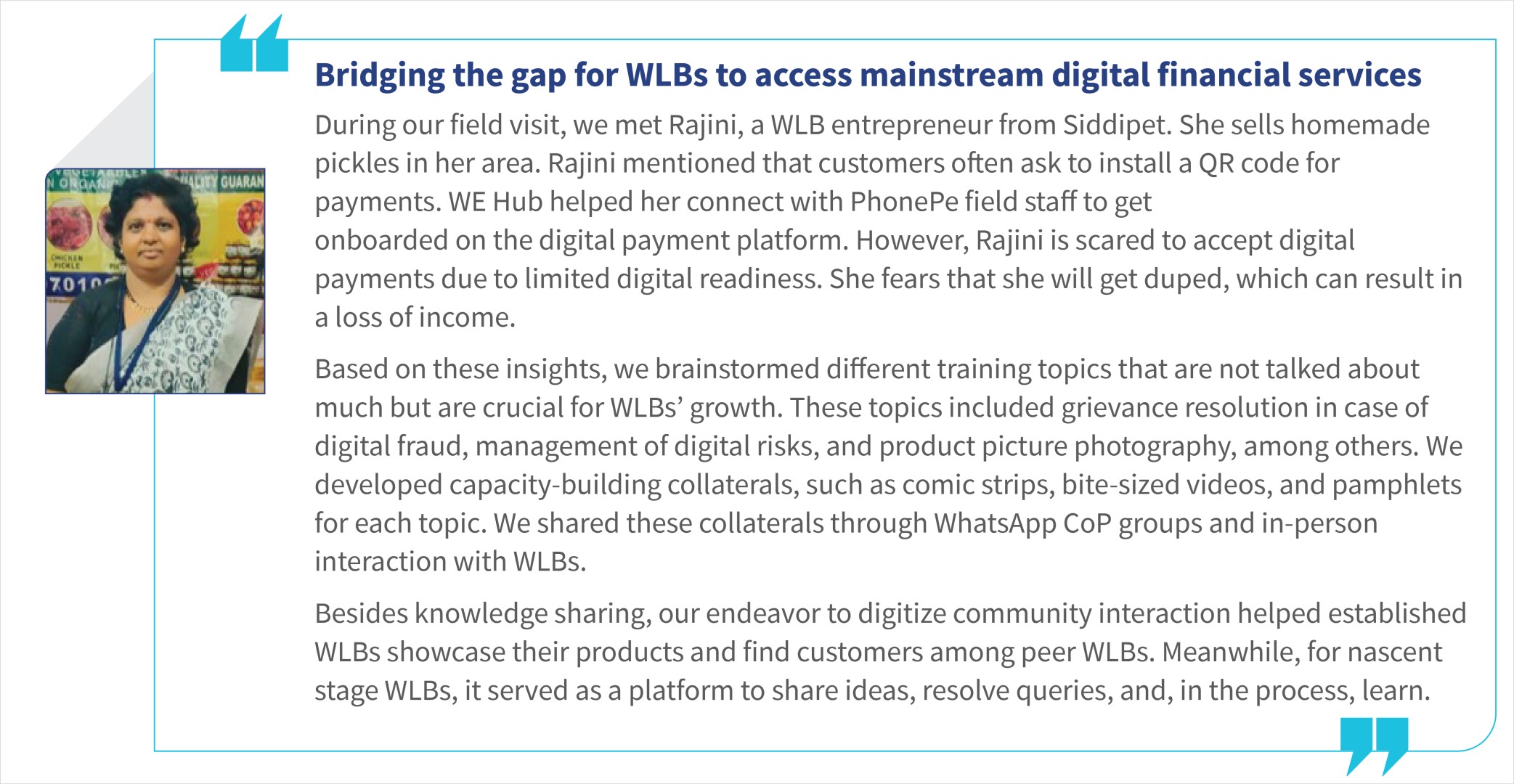
Use of technology for better engagement:
Our experience with WLBs suggests that they struggle to find relevant information related to business queries in simple and regional languages.
MSC used the WLB WhatsApp groups to integrate into the Sangini Konnect platform as part of the WE Hub project. Sangini Konnect is an artificial intelligence (AI) chatbot that allows WLBs to ask business-related queries and get detailed responses in the form of videos. All of this is in WLBs’ preferred regional language.
How did community-based interventions help WLBs?
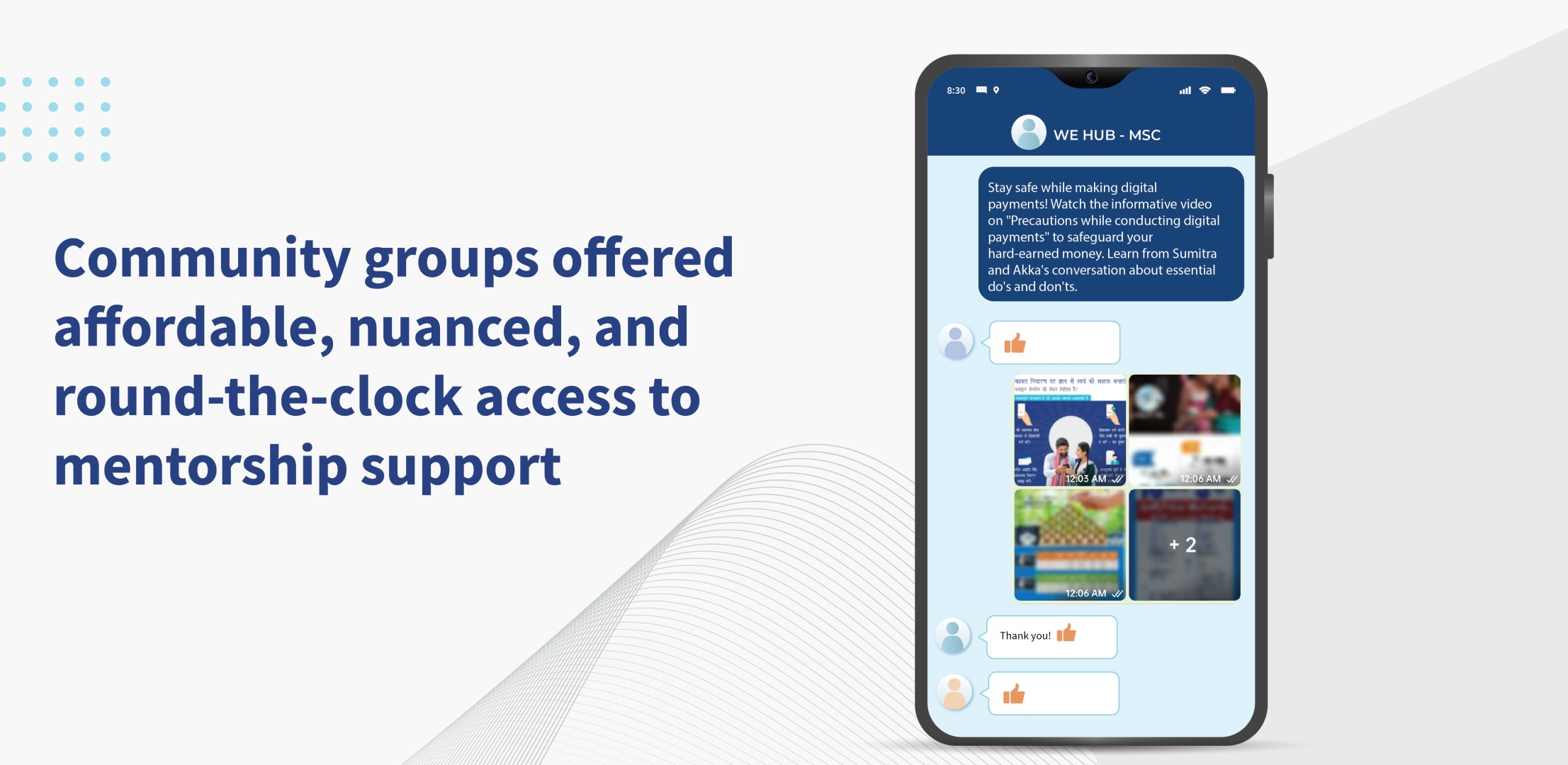
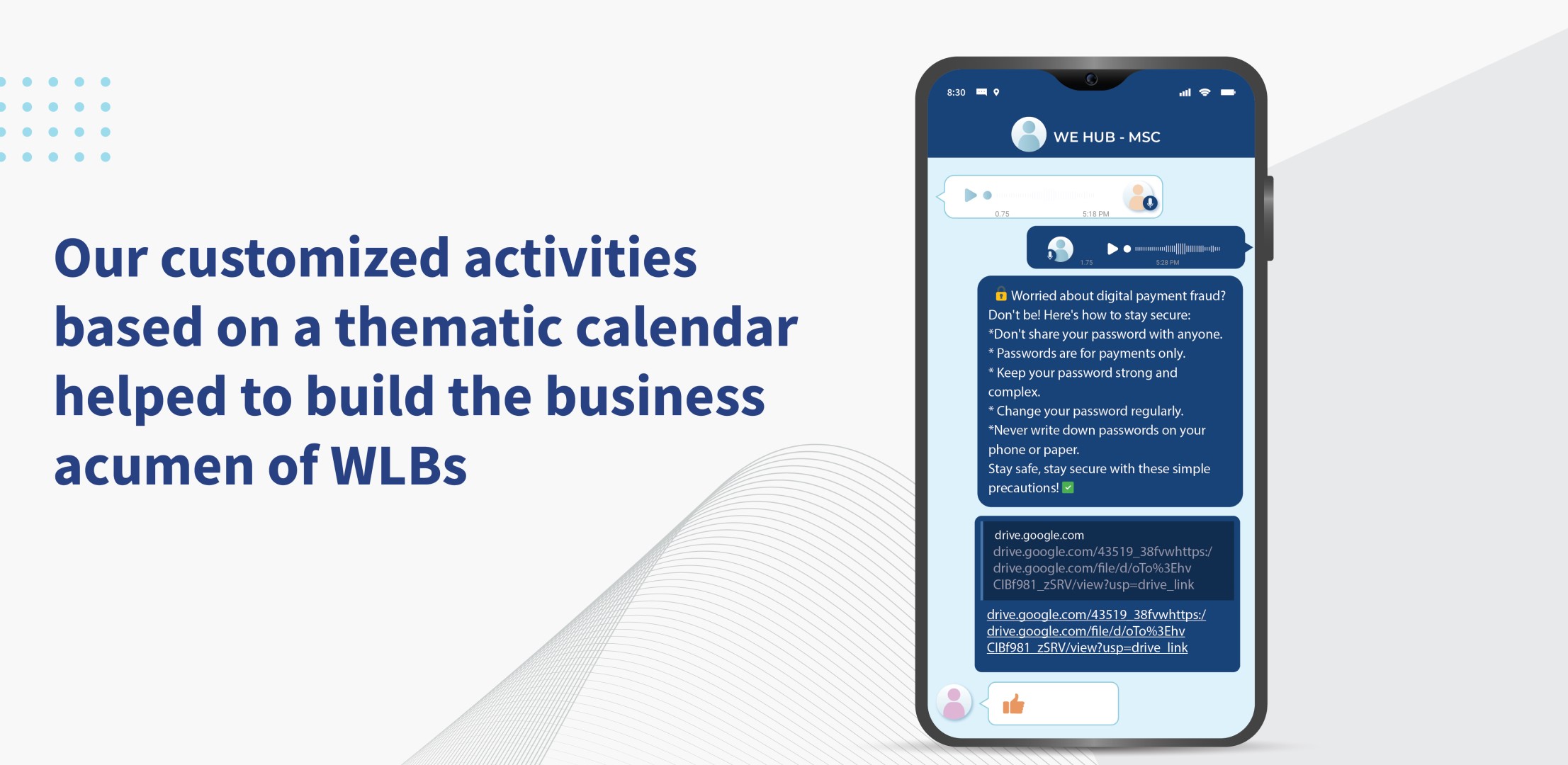
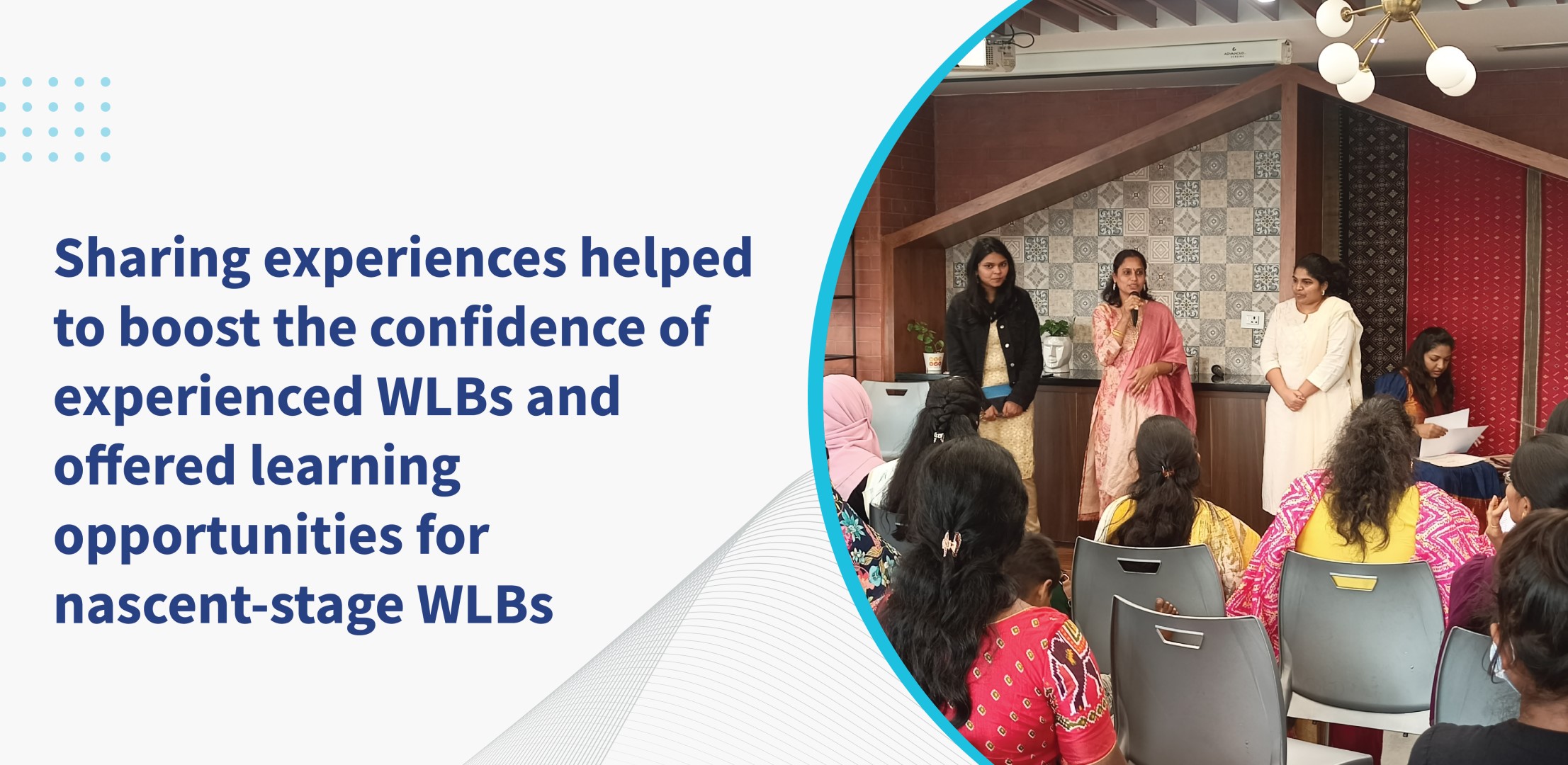
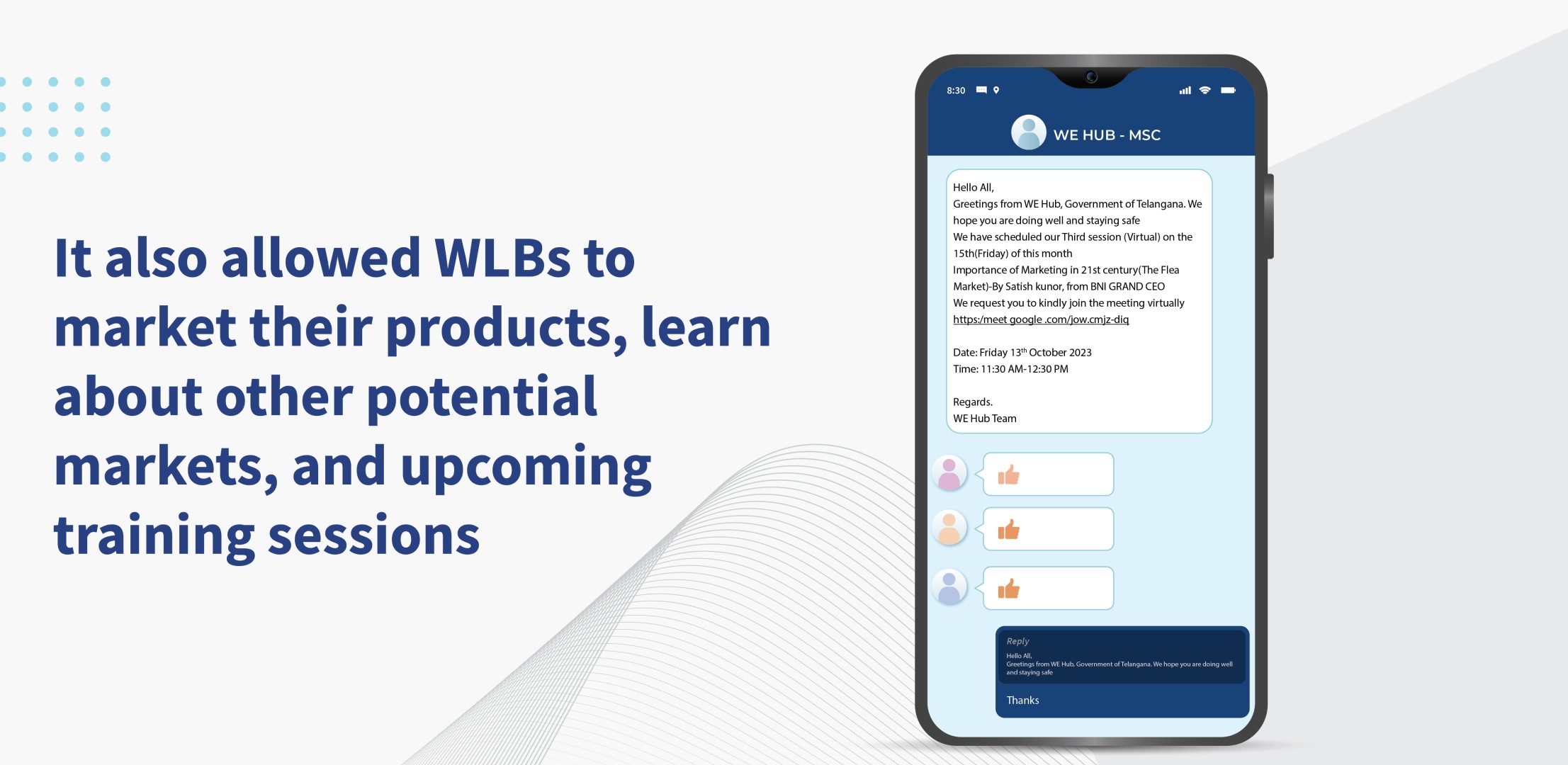
WE Hub and MSC’s collaborative efforts to use the community for mentorship positively impacted 5,470 WLBs in Telangana. It encouraged 4,062 WLBs to try digital payments for business and learn about crucial financial resilience products, such as insurance. Community-based mentorship is scalable and affordable and helps WLBs navigate sociocultural norms. Studies suggest that WLBs can unlock India’s goal of becoming a USD 5 trillion economy. The lack of mentorship support is not limited to Telangana’s WLBs but also extends to India and the Global South markets.
We can bring millions of WLBs into the folds of the digital finance mainstream if we tailor the learning experience around community-based mentorship to align with the Global South market’s contextual and social setting. It can digitally empower millions of women like Pragna to run their businesses and become a role models for her peer WLBs in India and beyond.



Leave comments